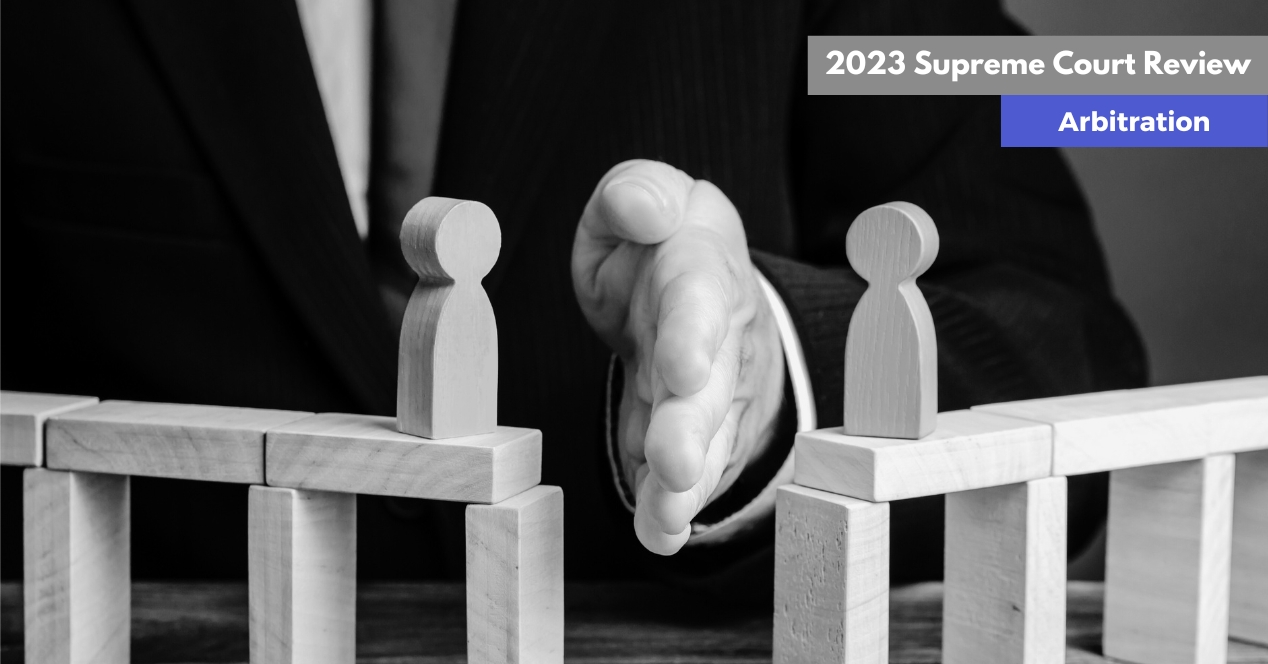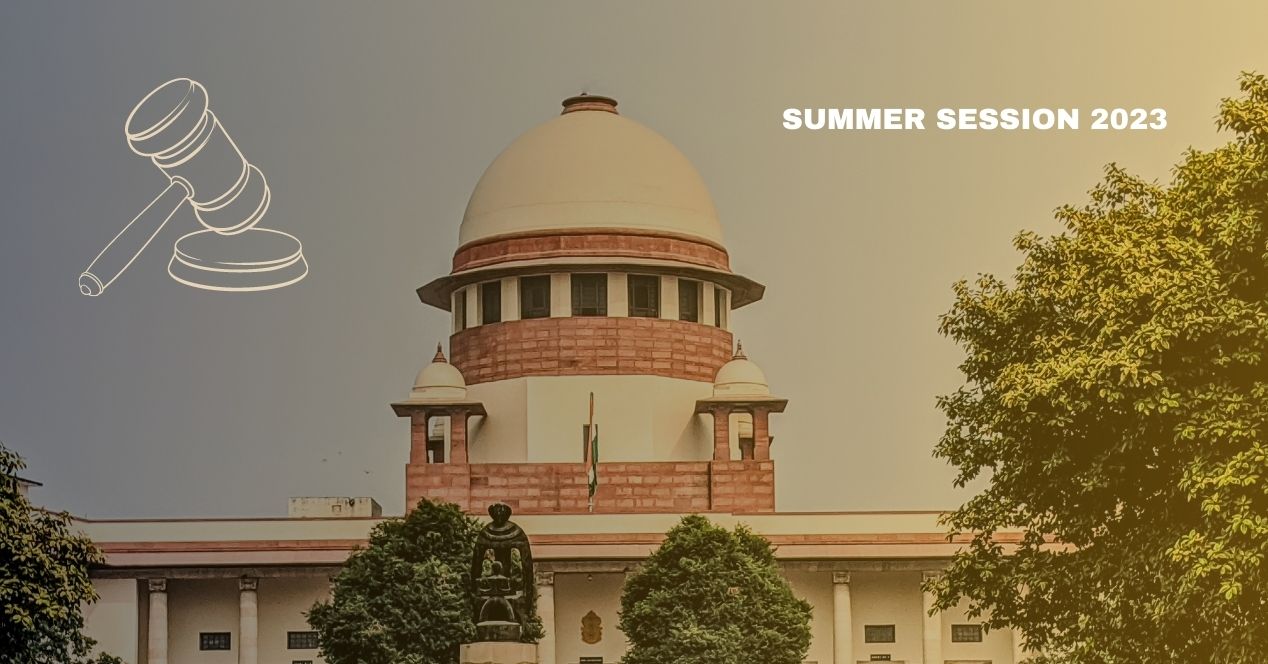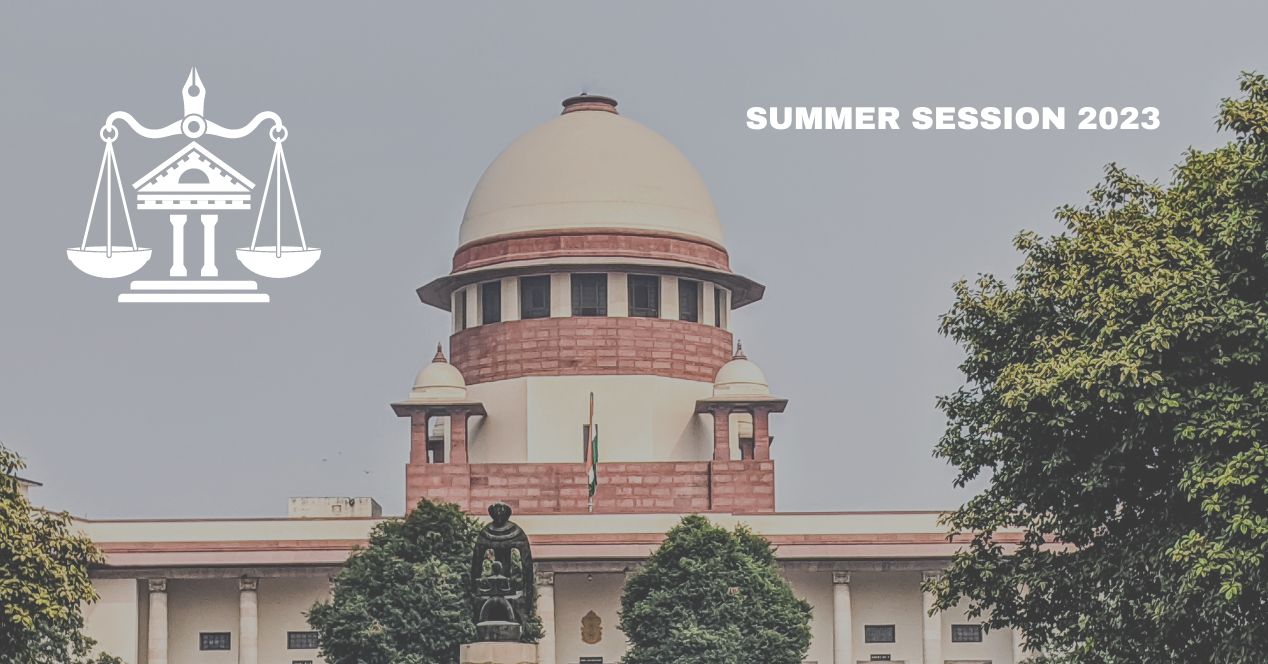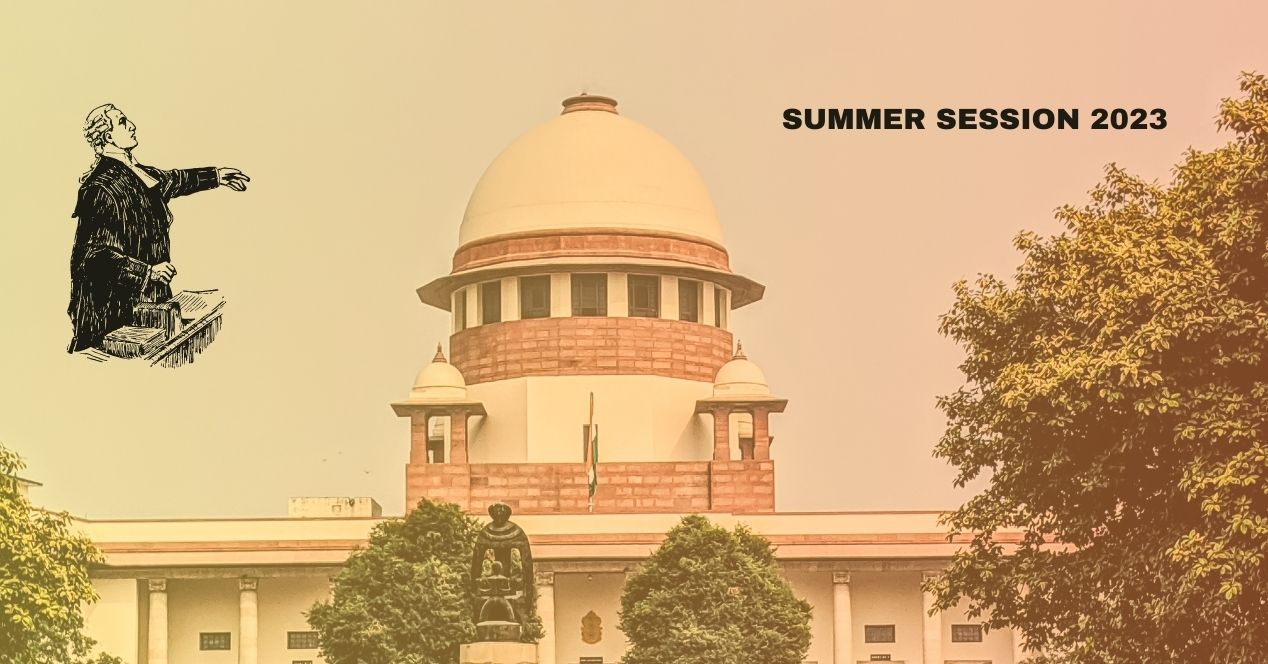Analysis
2023 Supreme Court Review: 10 key judgements
2023 has been an action-packed year at the Supreme Court. We feature 10 significant judgments and their fallout
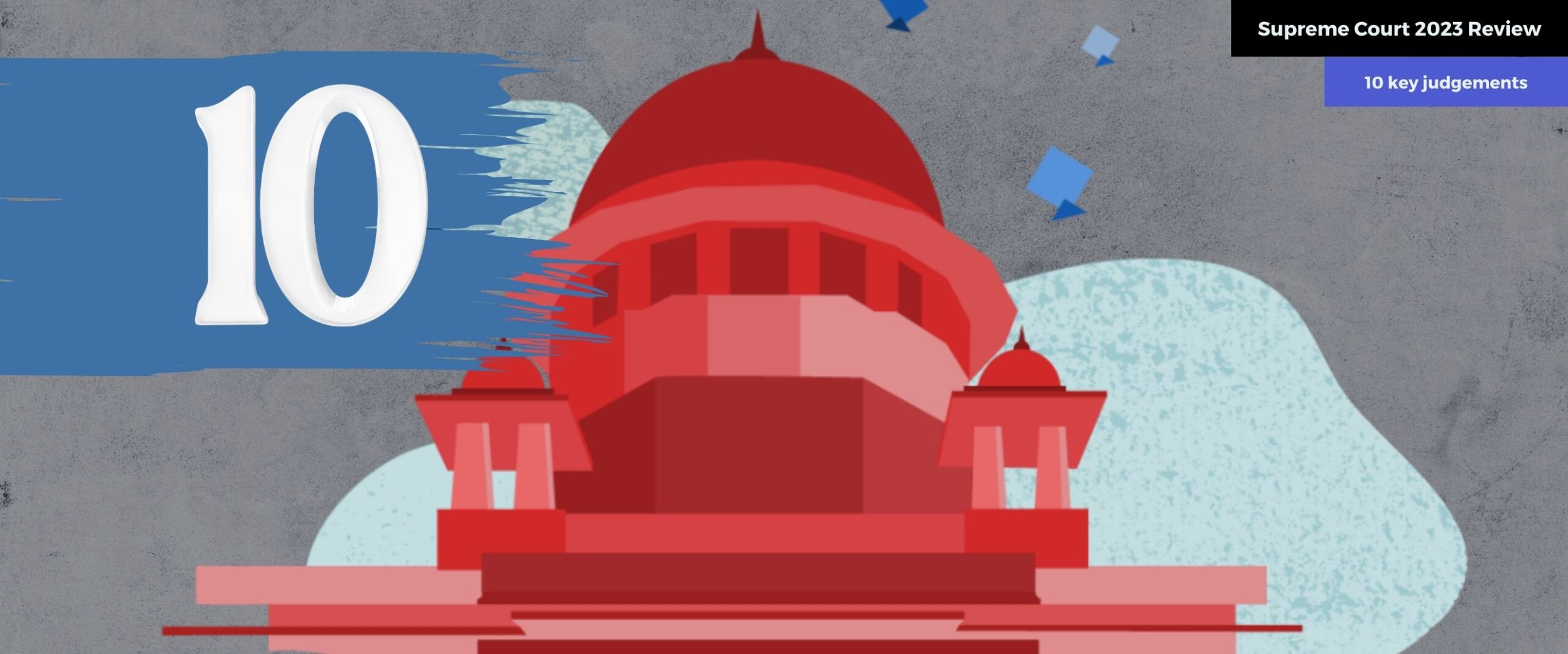
This year, the Supreme Court disposed of an impressive 52,220 cases. It was also the year of the most number of Constitution Bench decisions in recent history. The cases touched upon weighty issues like civil rights, political rights, personal liberty, freedom of speech, distribution of governance powers and the nature of federalism. Several decisions were viewed as a barometer of the health of the democracy and the independence of the judiciary.
In some cases, the Court acted quickly and decisively, such as when it issued a stay in the defamation matter in Rahul Gandhi’s case, enabling him to return to Parliament. The Court also granted bail to activist Teesta Setalvad in an evidence forgery case, while calling the order of the Gujarat High Court “perverse.” It also granted long-awaited bail relief to activists arrested in the Bhima Koregaon case. But, on certain other matters, it dragged its feet—activist Umar Khalid is still in jail without trial, and there’s no sign of the Pegasus spyware case being taken up for hearing.
As you can imagine, curating a list of 10 key judgements of the apex court is no easy task in any year. The choice is bound to be subjective, but we’ve tried to cover cases that have shifted the needle on some aspect of public law—either the law was changed or its interpretation. You will also notice that the list is loaded with cases where executive overreach was called into question. If that is a criticism, our defence is that we cover the ‘court of last resort.’
1. Challenge to the Abrogation of Article 370
In Re: Article 370 of the Constitution
On 11 December, a Constitution Bench led by Chief Justice D.Y. Chandrachud upheld the Central Government’s revocation of the special status of the erstwhile state of Jammu and Kashmir (J&K).
Parties challenging the abrogation claimed that the Union broke a constitutional promise made to J&K and breached the internal sovereignty enjoyed by the state per Article 370 of the Indian Constitution. They also contended that the provision was permanent and could not be abrogated after the dissolution of the J&K Constituent Assembly. The Union, on its part, claimed that the provision was temporary and that its abrogation had ensured complete integration of J&K into India.
The Court agreed with the Union that Article 370 was a temporary provision as indicated by its placement under Part XXI. It also upheld the validity of the presidential orders that abrogated Article 370, ruling that it was not a mala fide exercise of power. However, the presidential order amending Article 367 was held to be constitutionally invalid. The Court refused to comment on the validity of the reorganisation of the state on the ground that the Solicitor General had submitted that statehood would be restored to J&K in due time.
Supreme Court Observer reported extensively on 16 days of hearings in the case. Reports of each day of hearings are available on the case page. A summary and matrix of the judgement highlights the view taken by the five judges.
2. Plea for Marriage Equality
Supriyo @ Supriya Chakraborty v Union of India
On 17 October, a Constitution Bench led by CJI D.Y. Chandrachud rejected a batch of petitions that sought the equal right to marry for sexual minorities. The five-judge Bench unanimously held that there is no fundamental right to marry under the Constitution of India. They held that marriage flowed from social customs and not from law, which meant that a legal framework cannot enforce it as a right. They reasoned that the Court cannot recognise it as a right as it would place an obligation on lawmakers to codify an institution that the law did not create.
The Bench was also looking into whether validity of marriage between queer persons can be found within the Special Marriage Act, 1954 (SMA). Four of the five judges held that the purpose of creating the SMA was to facilitate interfaith marriages. It cannot be held unconstitutional for excluding non-hetereosexual couples from its fold. They warned that declaring the SMA unconstitutional would “take India back to the pre-independence era” where persons of different castes and religions could not marry. Justice S.K. Kaul disagreed, holding that the SMA’s initial purpose of interfaith marriage does not justify the exclusion of queer persons from its ambit.
Three of the five judges were of the view that queer persons do not have a right to enter into a “civil union”. They found that it is not within the Court’s power to recognise the right or to compel Parliament to make a relevant law. CJI Chandrachud and Justice Kaul, in the minority, held that there is a right to civil union.
The Bench was unanimous in its view that transgender persons in heterosexual relationships have the right to marry under the existing legal framework.
SCO’s judgement summary explains the 366 page judgement in short. The judgement matrix breaks down what each judge held.
3. Maharashtra political crisis
Subhash Desai v Principal Secretary, Governor of Maharashtra and Ors
On 11 May, a five-judge Bench held that the Governor’s decision of ordering a floor test to gauge the support to then chief minister Uddhav Thackeray was illegal. The reasoning was that the Governor had no objective material to do so. The question of whether a Speaker can decide disqualification petitions despite there being a notice to have them removed was referred to a seven-judge bench.
In June 2022, a faction of the Shiv Sena led by current Chief Minister Eknath Shinde had rebelled against Thackeray. In response, Thackeray issued 16 disqualification notices through the Deputy Speaker. The rebel MLAs then moved a no-confidence motion against the Deputy Speaker, which he rejected on the basis of a lack of authenticity. The disqualification notices were challenged before the Supreme Court.
Soon after, a floor test was ordered by the Governor but Thackeray resigned before it could be conducted. Shinde was invited by the Governor to form the government. The Governor’s invitation to Shinde and the election of the new Speaker were challenged in the Supreme Court by then General Secretary of the Thackeray-led faction, Subhash Desai.
The five-judge Bench declared the call for the floor test illegal but recognised that Thackeray’s resignation could not be reversed as it was voluntary. They left the question of whether the rebellion amounted to defection to be decided by the Speaker as per due procedure.
The Court also noted that the decision in Nabam Rebia & Bamang Felix v Deputy Speaker (2016) appears to have failed to consider the possible misuse of the direction—MLAs undergoing disqualification could simply file a notice of intention to remove the Speaker and thus stall the decision on their disqualification.
Despite the Court’s judgement directing the Speaker to decide the disqualification petitions “within a reasonable time”, a decision is yet to arrive. On being alerted to this delay by the Thackeray faction, the Supreme Court first granted the Speaker time till 31 December 2023, then extended it to 10 January 2024.
SCO has summarised the judgement here. An easy-to-read matrix can be found here.
4. The Lieutenant Governor and control over the NCT of Delhi
Government of NCT of Delhi v Union of India
On 11 May, a Constitution Bench led by CJI D.Y. Chandrachud held that the Government of the National Capital of Delhi (NCTD)—and not the Lieutenant Governor (LG)—controls the national capital’s civil servants and day-to-day administration.
The Bench unanimously held that the Delhi Legislative Assembly has the power to make laws extending to all subjects in the State List of the Seventh Schedule of the Constitution, except public order, police and land—subjects expressly excluded by Article 239AA of the Constitution. This means that the Delhi Legislative Assembly can make laws under Entry 41 of List II (State Public Services; State Public Service Commission). “[I]f the government is not able to control and hold to account the officers posted in its service, then its responsibility towards the legislature as well as the public is diluted,” the Bench observed.
The Court clarified that the legislative and executive power over ‘services’ such as the Indian Administrative Service, or joint cadre services shall lie with the Delhi government, and officers, though not recruited by it, would still serve under the state government.
The judgement upheld the principles of federalism in stating that Article 239AA must be interpreted to further the principle of representative democracy.
A week after the judgement, on May 19, the President promulgated an ordinance, which put the powers over ‘services’ squarely back with the Union government. The Ordinance created a National Capital Service Authority which was vested with the power to recommend the transfers and postings of certain high-ranking civil servants.
An amendment Act replacing the Ordinance was passed by the Parliament in August. The National Capital Territory of Delhi (Amendment) Act, 2023 restored the Delhi Legislative Assembly’s power to make laws with respect to ‘services’. The provision creating the National Capital Service Authority was retained.
A summary of the judgement is here.
5. Election Commission Appointments
Anoop Baranwal v Union of India
On 21 March, a five-judge Constitution Bench led by Justice K.M. Joseph modified the process for appointing members of the Election Commission of India (ECI). Emphasising the importance of an independent Election Commission, the Bench created a committee consisting of the Chief Justice of India, the Prime Minister and the Leader of Opposition in the Lok Sabha. Article 324(5) stipulates that the conditions of service for ECI members shall be such as the President determines, “subject to the provisions of any law made by Parliament.”
The Court interpreted the words “Subject to the provisions of any law made by Parliament” to mean that the power of appointment of ECI members was not to be lodged exclusively with the executive. Though the duty to frame a law for the appointment of ECI members fell within the legislature’s domain, the Court took note of the inordinate delays and parliamentary inaction, while clarifying that its directions will hold till the time the Parliament makes its law.
On August 10, the Union government introduced the Chief Election Commissioner and other Election Commissioners (Appointment, Conditions of Service and Term of Office) Bill, 2023 in the Rajya Sabha. The Bill proposed a “selection committee” which excludes the CJI. Besides the Prime Minister and Leader of the Opposition in Lok Sabha, the committee will comprise a Union cabinet member of the Prime Minister’s choosing. With Union government representatives in the majority, the Bill effectively gives the Executive the final say in the appointment of members of the ECI, restoring the position before the Supreme Court’s ruling in Anoop Baranwal.
On 12 December, the Rajya Sabha passed the Bill. Days later, on 21 December, the Lok Sabha passed it with a voice vote.
SCO’s summary of the 378-page judgement is here.
6. Challenge to Tenure Extension of CBI and ED Directors
Dr. Jaya Thakur v Union of India
In November 2021, the President passed two ordinances which allowed the Union to grant extensions to the tenures of directors of Central Bureau of Investigation (CBI) and the Enforcement Directorate (ED) in ‘public interest’. The ordinances were passed three days before the incumbent ED director, Sanjay Kumar Mishra’s tenure was to end. The Supreme Court in Common Cause v Union of India (2021) had held that tenures could be extended only in ‘rare and exceptional’ cases. Further, the Court held that no further extension could be granted to Mishra whose tenure had then been extended by a year beyond the fixed two-year term.
Petitioners claimed that such extensions would interfere with the independence of investigative agencies from the executive. The Union, they said, could use tenure extensions as incentives for the heads of these investigative agencies to take Union-friendly actions.
In July, 2023 the Court unanimously upheld the validity of the ordinances stating that the independence of the agencies would not be breached as there were sufficient safeguards that insulated the agencies from the pressures of the executive. The Court pointed out that a legislative enactment could only nullify a judgement if it was retrospective in nature. However, the Court also held that the extension granted to Mishra was illegal and directed the government to appoint a new director by 31 July. Despite this, Mishra’s tenure was extended till 15 September 2023.
Reports on each day of the four days of hearings is here, and a summary of the judgement can be found here.
7. Challenge to the practice of Jallikattu
Animal Welfare Board of India v Union of India
On 18 May, a Constitution Bench led by Justice K.M. Joseph upheld the practice of bull-taming sports such as Jallikattu, as permitted by state amendments to the Prevention of Cruelty to Animals Act, 1960 (PCA Act). The judgement, authored by Justice Aniruddha Bose, also upheld bovine sports of kambala in Karnataka and Bailgada Sharyat in Maharashtra.
A two-judge Bench in Animal Welfare Board of India v A. Nagaraja (2014) had banned Jallikattu and bullock-cart racing for causing unnecessary pain and suffering. The Court held that the “PCA Act, a welfare legislation…overshadows or overrides the so-called tradition and culture.”
The ban was undone by a notification of the Union Government in January 2016 that allowed the practice of Jallikattu with certain restrictions. Later, the states of Tamil Nadu, Karnataka and Maharashtra made state amendments to the PCA Act to allow bovine sports.
The Bench relied on the Government of Tamil Nadu’s argument that Jallikattu was a key part of the state’s culture which has been practised for centuries. However, the Court refused to venture into the question of whether a cultural right existed in this case, stating that it was “an exercise that cannot be undertaken by the Judiciary.”
The Bench also stated that the fundamental rights of animals do not have any precedent in Indian law and that it will not “be prudent for us to venture into a judicial adventurism to bring bulls within the protection of Article 21.” Highlights of the judgement can be found here.
8. Euthanasia and the Right to Die with Dignity
Common Cause v Union of India
On 24 January, a Constitution Bench streamlined the guidelines for withdrawal of treatment of terminally ill patients.
The alteration in the guidelines was undertaken in response to the Supreme Court’s judgement in Common Cause v Union of India (2018) which held that the right to die with dignity is a fundamental right under Article 21.
In its 2018 judgement, the Court observed that an individual’s right to execute ‘Advanced Medical Directives’ (AMDs) is an assertion of the right to bodily integrity and self-determination. An AMD is a document containing end-of-life instructions to be used when a patient is no longer able to communicate their wishes. The Court had laid down an extensive procedure for validating an AMD, requiring the creation of two medical boards, one by the treating hospital and the other by the District Collector. Doctors on these boards had to have 20 years of experience in the field.
In its January 2023 judgement, the Court tweaked these requirements and held that the doctors will only require five years of experience to be part of a medical board. The requirement of having the Chief Medical Officer on the second board was removed. The requirement of having the AMD countersigned by a Judicial Magistrate of the first class was dispensed with. Lastly, both boards were instructed to arrive at a decision “preferably” within 48 hours of the case being referred to it. Other details of the altered guidelines can be found in SCO’s judgement summary.
9. Supreme Court’s Power To Directly Grant Divorce
Shilpa Sailesh v Varun Sreenivasan
On 1 May, a five-judge Constitution Bench led by Justice S.K. Kaul held that in the exercise of the Court’s inherent power under Article 142, it can dissolve a marriage that has irretrievably broken down. The Court departed from the procedure laid down in Hindu Marriage Act, 1955, the Special Marriage Act, 1954 and the Indian Christian Marriage Act, 1872. The family law framework previously followed the “fault theory” according to which either of the parties to the marriage must prove fault.
The Bench held that if the Court is “fully convinced and satisfied that the marriage is totally unworkable, emotionally dead and beyond salvation,” it can exercise its powers under Article 142 to do “complete justice” to the parties involved.
Shilpa Sailesh is not the first case at the Supreme Court to employ the power under Article 142 to grant divorce. However, this judgement stands out for clarifying contradictory precedent on the use of ‘irretrievable breakdown’ as grounds for divorce. Further, for the first time, it set out the factors that the Court must take into account before ascertaining that there has been an ‘irretrievable breakdown’. This includes the duration of the period when the parties last cohabited, the nature of the allegations, attempts at settlements of disputes, other court orders and the duration of the couple’s separation. Here’s SCO’s detailed analysis of the case’s history and impact.
10. Validity of Unstamped Arbitration Agreement
In Re Interplay Between Arbitration Agreements Under The Arbitration And Conciliation Act 1996 And The Indian Stamp Act 1899
On 25 April 2023, a five-judge Constitution Bench led by K.M. Joseph in a 3:2 majority held that an unstamped or insufficiently stamped arbitration agreement was void and unenforceable. The decision however met with immediate criticism for creating practical difficulties in resolving urgent matters. In September 2023, a five-judge Bench led by CJI D.Y. Chandrachud decided to reconsider NN Global, and referred the case to a seven-judge Bench
In December 2023, the seven-judge Bench upheld the validity of an unstamped arbitration agreement. The Bench reasoned that not stamping was a ‘curable defect’ and would not render the whole agreement void. This decision also marks the first seven-judge Bench judgement in five years. SCO has detailed the background of the case here.

